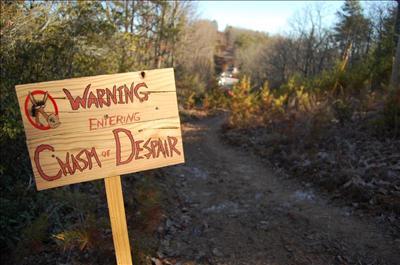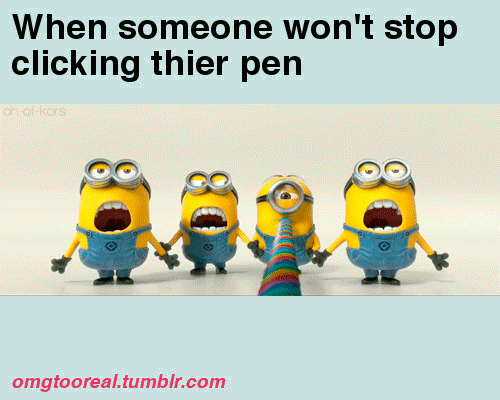I don't have a 'real' blog post today. I just have several tidbits -- things I realized over the past few days.
 |
| No, I didn't make this. |
- Interestingly enough, I find that whenever I start a novel, I automatically default to third person past, omniscient, even if it changes later. However, whenever I start a short story, I automatically default to first person present. Both are written equally badly, but I wonder what that means.
- My stories keep blending together. Maybe it's because I'm working on different things, as they bite me, so inspiration leaks. Maybe I'm just being paranoid, and it's really just that you can't avoid some cliches, which are so general that they're common to all, and it'll sort itself out as I keep writing; the devil is, as they say, in the details. Maybe it has nothing to do with working on separate projects or not, and the characters/worlds really are the same; maybe I just tend to create characters along certain repeated tropes. MAYBE it's all three! At this point, I don't know whether I'm just worrying too much (I mean, everything is still really abstract at this point, not much than thematic at best), or whether there really is something to worry about. It's all a big fat 'I don't know!' At the same time, I can't simply focus on one project, even though it's what I'd prefer, because once I do, that story starts taking me for granted, and promptly sulks in a corner, and refuses to cooperate.
- I'm shamelessly ripping this off of a forum post I wrote earlier, regarding something I noticed lately: Adequate characters are holograms (seeming real but fizzling out when you poke them) because they reflect the trope. Good characters are 3D because they show reality. Compelling characters go beyond the semblance of reality, and actively create the world around them. My point is, in order to make a character seem real to the reader, the character can't just be real, but has to be more than real. Part of that is due to the limitation of the written word, or non-auditory/non-visual sensory deprivation of film/television. How many real people do we know who would make good characters, exactly as they are, life and all? Story logic doesn't work like real life logic. The most human characters are superhuman. The most lifelike characters are larger than life. The most realistic story is larger than life. How or why this works, I can't say. I wish I knew. All I can say is, the beauty in it lies in the creator's ability to project not The reality, but to project a lie -- warped perceptions, misunderstandings, lying narrators, perceptions shaped by biases, and all. I wish I knew how to do this. How do you break through the wall of the trope? I don't want trope. I don't necessarily want to be a George R.R. Martin -- I mean, after all, I'm not him -- but I do want to similarly break the walls, in my own way. I want them to define themselves, and not be defined by any of my mental restrictions. The strongest characters, the ones that leap off the page, not only build the world for us, but they build the world as they see it.
- And as they don't see it. We all know that moment when we see through a character's eyes, and we, the consumers, know a moment when we know something is wrong, but the character doesn't. Wrong boyfriend. Wrong door. Wrong career choice. Wrong path in a moral dilemma. This most especially hits home in an opening scene -- ever see the opening for something, and you just know that the character is in the wrong place, but doesn't know it? It basically sets the tone for the entire story. I wish I knew how to do this. So far, when I've read books, or watched openers in film/TV, I was never able to figure out how they did it.
- I am my own worst enemy. My fear of failure is so potent that it's woven into me like one of those choking vines around an old tree. It's gotten so bad that it literally stops me every other sentence. Even if I find myself writing randomly, under the heady throes of muse bite, the fever cuts me down before I can even eke out a sentence of the burgeoning
brilliancebullshit. Then I slog on, writing on autopilot, never hitting the heights, because after every other sentence thereafter, my own inner editor tells me I'm not a good writer, and that I should just quit. This voice is so insidious that I thought I'd defeated it already when I got into a daily writing habit -- and only today realized that I'm still crippling myself. How do you defeat something like that?
There. I think that wall of text counts as a post, right?


